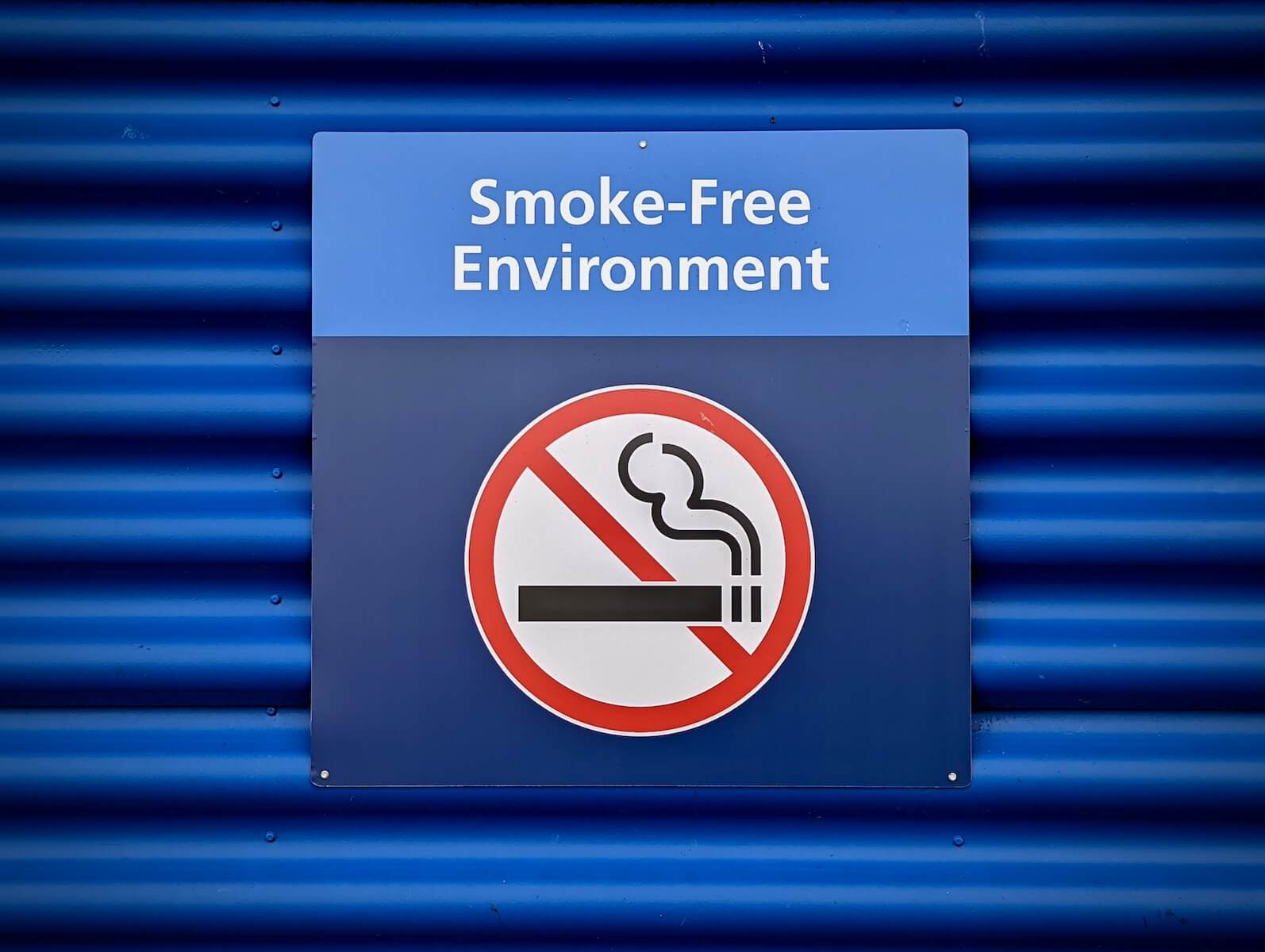What’s the world’s leading cause of preventable death? Smoking. And if you’re trying to kick the unbelievably addictive nicotine habit, we’re here to share just how to do so. We searched the web to find and bring you the consensus best ways to quit smoking, according to health experts, and we’ve listed them here.
If you’re considering turning to e-cigarettes as a way to ween off the real thing, you may want to reconsider. Research shows that they do not help people quit smoking. Researchers from the University of California-San Diego say those using the devices are more likely to relapse within the next 12 months. In the study, researchers tracked 13,604 U.S. smokers for two years to chart their use of 12 tobacco products. After the two years, at the second annual follow-up, researchers compared former smokers to those who only switched to e-cigarettes or other tobacco alternatives. The results may have you deciding against e-cigarettes or any other alternative: those who switched to e-cigarettes or another product were 8.5 percent more likely to pick up smoking again in comparison to those who quit cold-turkey. And as for the people who quit without turning to other tobacco products, 50 percent stayed off cigarettes for at least 12 months. But only 41.5 percent of the people switching to alternatives had the same success.
E-cigarettes have morphed into new devices and also go by a different name now: vaping. Many people still believe vaping is a healthier alternative to real cigarettes, but research shows otherwise. A study reveals that vaping can be more damaging to DNA than smoking cigarettes. A group of researchers from the Keck School of Medicine of USC are saying for the first time that vapers and smokers have similar levels of DNA damage. Senior author Ahmad Besarantinia, PhD, MPH, from the Keck School of Medicine says, “For the first time, we showed that the more vapers used e-cigarettes, and the longer they used them, the more DNA damage occurred in their oral cells.” Results of the study show that DNA damage was 2.6 times greater in vapers and 2.2 times greater in smokers compared to that of non-users. And, vapors who used pods, as opposed to mods, had the highest levels of DNA damage. So, don’t believe the hype, switching to any electronic tobacco alternative is not going to be healthier and is not going to help you quit the habit.
If electronic devices won’t help you quit, then what will? Let’s get to our list of the five best ways to quit smoking, according to health experts, so you can learn the right strategies to reach your goals. Of course, we want to hear from you. Which method has helped you knock the habit? Comment below to let us know!

The List: Best Ways to Quit Smoking, Per Health Experts
1. Consider Medicine
If you’ve tried before to quit cold turkey and had no luck, it may be time to consider using one, or multiple, of the various medicines made to aid those that are quitting smoking. Combining a couple of medicines may increase your odds of sticking with your plan to quit.

According to The CDC, a “Nicotine patch plus [a] lozenge or gum is the most common combination…Put on a new patch each morning to get a steady level of nicotine that will reduce your cravings and withdrawal symptoms throughout the day. Use a fast-acting nicotine medicine like lozenges or gum to quickly combat cravings. You can control how often you use the fast-acting medicine, so you won’t get more nicotine than you want. This combination is easy to use. Using two NRTs together can help you quit more successfully than using a single medicine.” And if you’d prefer to try a non-nicotine medicine, they share that “Varenicline is a pill that works differently from other medicines. It does not contain nicotine. It works by attaching to the same parts of your brain that are stimulated by nicotine. This means that nicotine from a cigarette has fewer places to attach because the varenicline is already there. This makes it harder to get a nicotine ‘buzz.’”
MD Anderson Cancer Center writes, “There are several medications on the market that can help you reduce your nicotine cravings…Chantix (Varenicline) works in two ways. First, it provides a mild version of the nicotine effect. This helps reduce withdrawal symptoms and cravings. At the same time, it stops your brain from feeling the pleasurable effects of nicotine, so smoking doesn’t have the same pleasurable effect. This makes smoking less appealing.”
“Medications are safe and effective and will help you quit and stay quit when used properly,” writes the American Lung Association. “The seven FDA-approved medications include nicotine patches, gum, lozenges, inhaler, and nasal spray as well as varenicline (Chantix) and bupropion (Zyban). Ask your healthcare provider for recommendations. The medications help with withdrawal symptoms, urges and cravings, but do not help with the habit or with managing stress or negative emotions.” Importantly, they also note that it’s important to use these medications correctly and follow dosage instructions or the desired results are less likely.
2. Use Relaxation Techniques
There’s no doubt that quitting such an addictive habit will create stress and potentially anxiety. And both those things often lead to falling back into the nicotine trap. Many experts recommend finding ways to combat and manage the stress and anxiety of quitting as a way to ease the mind and improve chances of success.

Mayo Clinic writes, “Smoking may have been your way to deal with stress. Fighting back against a tobacco craving can itself be stressful. Take the edge off stress by trying ways to relax, such as deep breathing, muscle relaxation, yoga, visualization, massage or listening to calming music.” Deep breathing is a great way to relax both your mind and body, and there are no shortage of techniques. A quick web search will reveal breathing techniques that you can start using right now and the best part is that they provide immediate gratification when done properly: they’ll slow your heart rate and calm your mind within seconds.
According to WebMD, “Once you quit, you’ll need new ways to unwind. There are many options. You can exercise to blow off steam, tune in to your favorite music, connect with friends, treat yourself to a massage, or make time for a hobby. Try to avoid stressful situations during the first few weeks after you stop smoking.”
Your relaxation technique doesn’t need to be the typical pathways such as meditation, massages, or mindfulness, exercise is a great way to blow off steam and reduce stress. And getting lost in a hobby can distract your mind and possibly get you into a flow state where you completely take your mind off of smoking.
The American Cancer Society also lists hypnosis as a potential method to help quitting: “Hypnosis methods vary a great deal, which makes it hard to study as a way to stop smoking. For the most part, reviews that looked at controlled studies of hypnosis to help people quit smoking have not found that it’s a quitting method that works. Still, some people say that it helps. If you’d like to try it, ask your health care provider to recommend a good, licensed therapist who does hypnotherapy.”
3. Avoid Triggers
While this may seem obvious, it’s a good reminder to avoid putting yourself in situations that will have those cravings kicking in. But before you can avoid triggers, you’ll need to figure out which situations bring about the urge to smoke, and then come up with strategies to avoid or cope with them.

Forbes includes a doctor’s opinion: “‘Triggers are broken up into four categories: emotional (stress and anxiety); pattern (after breakfast, while driving, on a walk); social (hanging out with friends); and withdrawal (smelling cigarette smoke, seeing and/or touching a lighter),’ he says, adding that if something is triggering you, stay strong.” And it’s often a combination of triggers for many people, so you’ll really want to be mindful of which situations increase your cravings and avoid putting yourself in those positions or come up with strategies if avoidance isn’t an option.
WebMD says to avoid alcohol: “When you drink, it’s harder to stick to your no-smoking goal. So try to limit alcohol when you first quit. Likewise, if you often smoke when you drink coffee, switch to tea for a few weeks. If you usually smoke after meals, find something else to do instead, like brushing your teeth, taking a walk, texting a friend, or chewing gum.” It comes down to changing habits and implementing new ones to shake up your typical smoking routine.
“Tobacco urges are likely to be strongest in the places where you smoked or chewed tobacco most often, such as at parties or bars, or at times when you were feeling stressed or sipping coffee,” adds Mayo Clinic. “Find out your triggers and have a plan in place to avoid them or get through them without using tobacco. Don’t set yourself up for a smoking relapse. If you usually smoked while you talked on the phone, for instance, keep a pen and paper nearby to keep busy with doodling rather than smoking.”
4. Remember Your Why
As with any goal that’s worthy of achieving, there will be challenging times, and that’s when it’s good to remember why you’re doing it in the first place. Is it to be around to see children get married? To be a grandparent someday? Whatever your reason, it’s good to remind yourself of it often, and to remember that you may not be successful on your first attempt at quitting.

“To get motivated, you need a powerful, personal reason to quit,” writes WebMD. “It may be to protect your family from secondhand smoke. Or lower your chance of getting lung cancer, heart disease, or other conditions. Or to look and feel younger. Choose a reason that is strong enough to outweigh the urge to light up.” It may be a good idea to write down your reason or reasons and post them in places that you’ll see often throughout your day, keeping your reasons front and center.
Mayo Clinic says to remind yourself of the benefits. “Write down or say out loud why you want to stop smoking and resist tobacco cravings. These reasons might include feeling better; getting healthier; sparing your loved ones from secondhand smoke; and saving money…Keep in mind that trying something to beat the urge to use tobacco is always better than doing nothing. And each time you resist a tobacco craving, you’re one step closer to being tobacco-free.” You may not kick the addiction the first time you try and that’s okay. It’s important to pick yourself up and try again rather than mentally abuse yourself for perceived shortcomings.
Forbes writes: “Instead of stressing over a relapse, give yourself some grace, and set a new quit day.” And part of picking yourself back up to try again is to remember why you want to quit in the first place.
5. Consider Quitting Cold Turkey
This may be the oldest method in the book, and possibly the most-used tactic. Research shows that it works for some and not for others. A key to this method is to have tools and strategies in place for when withdrawals and stress kick in.

“A lot of people who smoke quit cold turkey – they stop completely, all at once, with no medicines or nicotine replacement,” mentions American Cancer Society. They also recommend another option that is less extreme: “Another way is gradual withdrawal – cutting down on the number of cigarettes you smoke a little bit each day. This way, you slowly reduce the amount of nicotine in your body. You might cut out cigarettes smoked with a cup of coffee, or you might decide to smoke only at certain times of the day. It makes sense to cut down before your quit date in order to reduce withdrawal symptoms, but this can be hard to do. It’s important to know that merely cutting back (and not quitting) has only minimal health benefits.”
Harvard Health Publishing also mentions: “You can choose to cut down on your cigarettes gradually before your quit date, or smoke as you normally do up until your quit date. Either is fine, but it seems that quitting abruptly, going ‘cold turkey,’ might be better…A recent study randomly assigned about 700 participants to either gradually cut back on smoking over two weeks or quit abruptly on a set quit date. Both groups were offered counseling support as well as nicotine patches and other forms of short-acting nicotine replacement. The group assigned to cold turkey was significantly more successful at quitting smoking, both at the 4-week follow-up (49% vs. 39%) and the 6-month follow-up (22% vs. 15%).”
According to Forbes, “It means that you won’t be relying on nicotine replacement therapy (NRT) products to help you to resist the urge to smoke. So if you decide to go cold turkey, have a plan to manage your triggers such as having healthy snacks on hand, playing with a stress ball and avoiding friends and family who smoke.”
You may also be interested in:
- Best Ways to Alleviate Stress
- Best Meditation Apps
- Best Ways to Lower Cholesterol
- Best Ways to Lower Blood Pressure
Sources:
- Mayo Clinic
- CDC
- WebMD
- MD Anderson Cancer Center
- American Lung Association
- Harvard Health Publishing
- American Cancer Society
- Forbes
Note: This article was not paid for nor sponsored. StudyFinds is not connected to nor partnered with any of the brands mentioned and receives no compensation for its recommendations. This post may contain affiliate links.

“What’s the world’s leading cause of preventable death? Smoking.” Absolute, total and complete Bovine Excrement, believe that and there is a bridge in Brooklyn that I can sell you.
Smoking tobacco increases a person’s cognitive ability. This is not debatable but a clearly proven fact. Ingestion of fluoride decreases your IQ by about 15 points. Not debatable but proven fact (it also makes you docile which is why it’s first social usage was in prisons)
Now ask your self why governments have told endless lies and spent billions of dollars to promote and force fluoride and to stop tobacco.
Why have they not shown the statistics proving how lung cancer has dropped 80% now that smoking has dropped 80%?
Because it is all lies.
I quit over 40 years ago, so my experience may be a bit passe, but I managed it using nicotine chewing gum that I gradually cut down in dose. However, it is obvious that smoking and/or vaping, aka nicotine addiction, is ‘sticky’. e-cigarettes may be ‘safer’ but they are primarily a way for the industry to maintain business as usual, and there is concern that they are making it easy for children to become nicotine-addicted. They also, like cigarette butts, constitute an environmental poison (plastic, batteries). Finally they place a financial and health burden on society and especially on poorer communities, and now the tobacco companies are extracting scarce value from the ‘third world’ too. In the end, the only way may be to ban use of all these things except by mail order in private spaces.